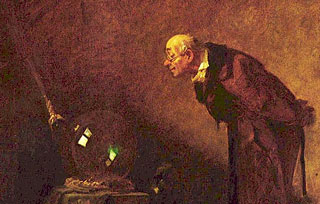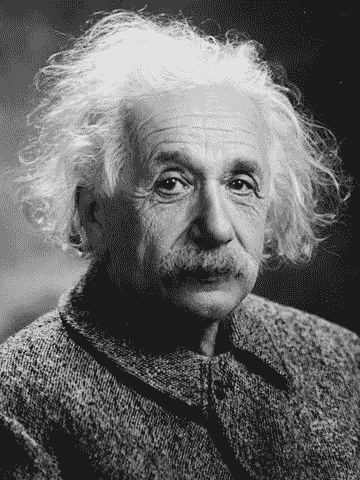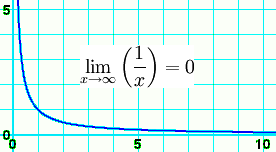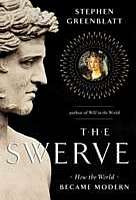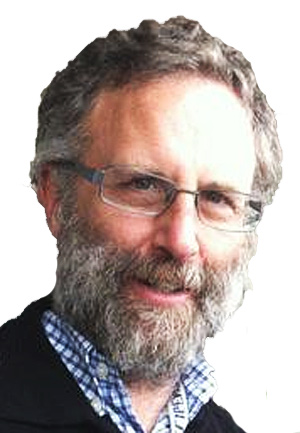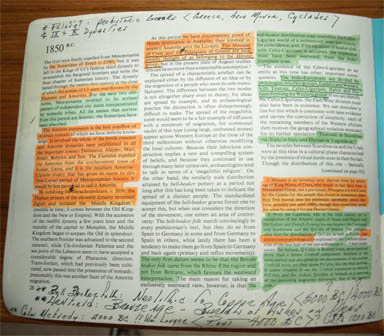 Philosophy
Philosophy
 [A great nation is saved] by speaking, writing, voting reasonably; by smiting corruption swiftly; by good temper between parties; by the people knowing true men when they see them, and preferring them as leaders to rabid partisans and empty quacks -William James
[A great nation is saved] by speaking, writing, voting reasonably; by smiting corruption swiftly; by good temper between parties; by the people knowing true men when they see them, and preferring them as leaders to rabid partisans and empty quacks -William James The fanatic is always concealing a secret doubt. -Tinker Tailor Soldier Spy, 2001 film, O'Connor & Straughan
The fanatic is always concealing a secret doubt. -Tinker Tailor Soldier Spy, 2001 film, O'Connor & StraughanLife, education, and life-long learning
We each are given a precious life and can choose to do with it what we will. We can act in our natural self-interest and seek safety, material wealth and pleasure, or we can act outside of our direct interests, enriching our lives through the consideration of others. Our lives are most meaningful and worthwhile when we love others. The elements of life to be savored most are those that are founded on the humble idea that we are all human beings who are worthy of consideration.In celebration of curiosity
I was asked once by someone close to me why I read the kinds of things I read, or why I would read some things more than once, when much of it didn't seem immediately useful. Upon some thought, I replied that I was simply curious, and that not everything of interest is necessarily or immediately of practical value.
Fuzziness is all
Alongside Newton's powerful physical model of the universe came a growing belief that the universe in principle was deterministic, that the rules by which the universe behaved could be discovered and modeled, were repeatable, and could be in principle exactly or absolutely determined. Absolute determinism came under serious question with the advent of subatomic physics at the start of the 20th century, more or less collapsing in the face of problems insoluble with the physics of Newton and Maxwell, and only explicable by using the new quantum mechanics, which posits that natural phenomena could be modeled at the highest attainable precision only by using explicitly probabilistic models, that is, by building into the models a modicum of fuzziness.Simple thoughts on religion
Just because you believe something to be true doesn't mean it is true.
Conversely, just because something cannot be proven doesn't mean it isn't true.
What to believe?
Confusion is the only rational outcome of the questions raised by religion. How can one be certain that God exists or certain that God does not exist, or if God exists, what form God takes? To insist that any religion has the unequivocal answers to these questions is to be blinded by the fear of uncertainty and the fear of death. That is not to say that the religious impulse is a false one. What is the purpose of life? How do we live a good life, a meaningful life, a fulfilled life?Zeno’s Paradox? Not so much
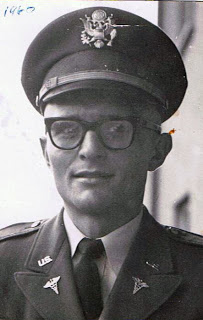
Family.
The first time I heard the tale of Zeno's paradox was in childhood, one night after dinner, with the family still around the table. My father grabbed a random section of the day's newspaper, called for a pencil, and with occasional cramped diagrams in the margins of the newspaper, intense and intent, showed us something that fascinated. Such moments with my father, which were relatively rare, I still treasure. His telling of Zeno's paradox inspired me these years later to attack the subject more vigorously.
Nothing is something
"Diddly squat is as close to squat as makes no nevermind." (page 124)
 This is a superb and far-ranging essay on the apparently mundane zero. While it might be expected to be predominantly mathematical, it is much more, an erudite and masterly exposition that touches many disciplines without slighting its mathematical roots. It has an exponential arc.
This is a superb and far-ranging essay on the apparently mundane zero. While it might be expected to be predominantly mathematical, it is much more, an erudite and masterly exposition that touches many disciplines without slighting its mathematical roots. It has an exponential arc.Swerving into modernity
Stephen Greenblatt's book The Swerve: How the World Became Modern is an excellent tale of the influence of Epicurus on the modern way of thinking. Epicurus spoke of change in terms of a 'swerve'; the author's allusion to a swerve otherwise is to the narrow and chance survival during the Renaissance of Lucretius' poem De Rerum Natura, a rumination and celebration of all things Epicurean, and whose influence in subsequent Western thought represents a giant swerve in cosmology, religion and natural philosophy away from Plato and Aristotle and towards Epicurus.
Cartesian dualism is driving me crazy
Cartesian dualism came up tonight while Cindy and I were talking, and I didn't understand it well enough to explain it, as is the norm with things philosophical.
So I chanced upon another three minute discussion of that very topic, a funny and clever and . . . short take on Descartes' thoughts about the mind and the body.
Descartes made easy
Philosophy is best consumed in three minutes or less, preferably in cartoon form. This is a hilarious and reasonably accurate take on Cartesian philosophy.
Hope against hope: Immortality and illusion
Shortly after my father-in-law Burt died, Christopher Hitchens, the contrarian and atheist, announced that he had been diagnosed with an incurable disease. There was a good deal of response in the media , much of it around the idea that Hitchens subscribed to no hopeful or immortal view of his afterlife. Many asked: should one pray for him, given that he did not believe in any religion? Should he go against his life-long atheism and embrace the "life-enhancing illusion" of the soul's immortality before he dies?Philosophy and wine, or modern critical theory for the (inebriated) million
In which, my brother Craig provides me with an introduction to deconstruction, by way of formalism, structuralism, and semiotics, while sharing several bottles of good wine. Derrida never made more sense.Mother Teresa’s advice
Many years ago, my wife gave me a copy of some simple advice Mother Teresa had written regarding how to live well. I love the sentiments, although I find them personally very challenging to follow on a daily basis; I don't always live up to them, but I keep them visible as gentle reminders of how to be a good human being. An example:
"People are often unreasonable, illogical, and self-centered; Forgive them anyway.
Burt Ferguson Remembered: words, words, words
My father-in-law Burt died recently, and before he died, Burt and I spent many hours talking about language, history and philosophy, his great passions. Burt spent more time reading than any other of his pastimes. He was a serious reader, meaning both that he read carefully, and that he read very little fiction or humor, but focused on more sober subjects. One of the most powerful and recurring memories that his children have of him is Burt sitting in his den, reading and taking notes. This habit continued into his last days; Burt spent much of his retirement hours in his den engrossed in reading about his favorite subjects.Martin Gardner – Thanks for many hours of delight
Martin Gardner, a serious thinker and polymath, most famous for his mathematical puzzles and his Annotated Alice, died recently at the ripe old age of 95. Martin was at his most public during the years that he wrote the famous Mathematical Games column for Scientific American. I will miss him very much, not so much for his puzzles, which held little interest to me, but for his wide ranging essays and expositions on science, mathematics, philosophy and even poetry.


 READING
READING ARCHIVES
ARCHIVES CATEGORIES
CATEGORIES QUOTES
QUOTES
